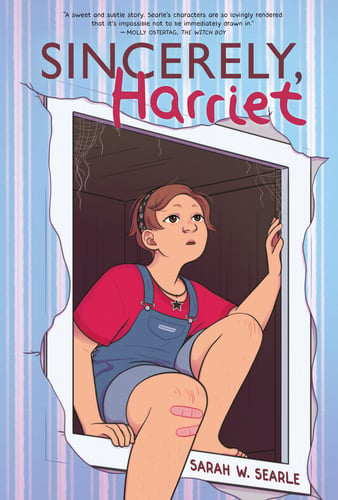Sincerely, Harriet is the sort of book I would have loved to read as a teen. The story follows Harriet Flores, a thirteen year old white Latinx girl who begins the book by writing postcards to her friends at camp. She isn't at camp, for reasons that become clear as the story progresses. Instead, she's essentially trapped in the two-family home her family shares with an older Black woman, who lives on the first floor. Harriet's journey is subtle but nuanced, and I adored this book. (Even though it made me cry.)
Some of what follows is a bit spoilery, so if you wish to avoid spoilers, please head off to read it now and don't finish this review.
Harriet lives mostly in her head. She struggles to complete her summer reading because she doesn't see herself in the books she's been assigned, like The Great Gatsby. We eventually learn that she's been home-schooled for the last two years and that she's entering public school in just a few weeks. It's a time of pre-transition, that anxious, but boring inbetween. Searle captures it beautifully with her soft and emotional style.
Harriet's loneliness is a character in this book. She has largely fictionalized her relationships with the girls to whom she's writing. She has a crush on one of them, and considers the other a friend. (This is not the case, as we learn later in a heartbreaking scene.) Her parents are gone all day and into the night, working. And she hears strange sounds from the empty floor above the apartment.
The story that unfolds is one of invisible disabilities, generational healing, and friendship in unexpected places. It's one of loneliness and comfort, of abandonment and family. It's about a queer, disabled girl figuring out who she is and how her relationships can harm or heal her. She hurts and hurts others, but she learns and grows, gives and receives love. It's absolutely lovely.
Suzanne accessed a digital copy of this book for review.


